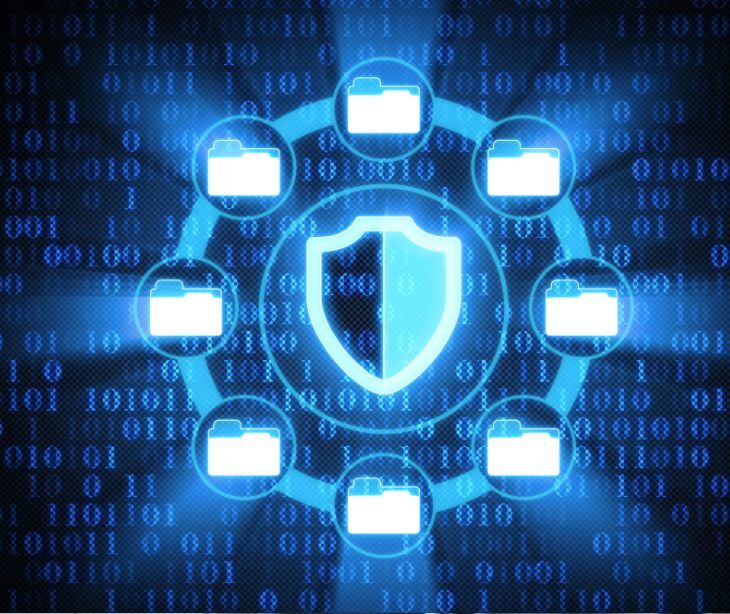
Advancements in electronic medical records (EMRs) and electronic health records (EHRs) have revolutionized how patient data is stored, accessed, and shared in the healthcare industry.
Understanding EMRs and EHRs
Electronic medical records (EMRs) and electronic health records (EHRs) are two terms often used interchangeably in the healthcare industry. While they share similarities, there are subtle differences between them. An EMR refers to the electronic entry, storage, and maintenance of digital medical data. An EHR encompasses a broader range of patient information, including demographics, test results, medical history, and medications.
EMRs are an integral part of EHRs and offer a range of functionalities that streamline healthcare operations. These functionalities include patient registration, billing, preventive screenings, appointment scheduling, and monitoring and improving the overall quality of care.
Read more: EMR or EHR? What's the difference?
Benefits of using EMR/EHR systems
Adopting EMR/EHR systems brings numerous benefits to healthcare providers, patients, and the healthcare ecosystem:
Comprehensive patient-history records
EMR/EHR systems enable healthcare providers to access detailed and up-to-date patient records, including medical history, test results, and medications. This access to patient information allows for better diagnosis and treatment decisions.
Shareability of patient data
EMR/EHR systems facilitate the seamless exchange of patient data between healthcare providers, improving care coordination and reducing duplication of tests or procedures. This interoperability leads to more efficient and effective healthcare delivery.
Convenience and efficiency
Electronic records eliminate the need for manual paperwork and reduce administrative tasks, allowing healthcare professionals to spend more time with patients. EMR/EHR systems also automate processes related to patient appointment scheduling, billing, and preventive screenings, streamlining operations.
Improved quality of care
EMR/EHR systems empower healthcare providers to deliver personalized care by enabling access to a patient's complete medical history. The availability of real-time data ensures that clinicians have the most accurate information at their fingertips, leading to better clinical decision-making.
Risks associated with EMR/EHR usage
While the benefits of EMR/EHR systems are evident, it is important to acknowledge their implementation's potential risks and challenges:
Security and privacy issues
The electronic nature of EMRs/EHRs introduces security vulnerabilities, making them potential targets for cyberattacks. Patient data breaches can result in privacy violations, identity theft, and financial fraud.
Vulnerability to hacking
EMRs/EHRs contain a wealth of sensitive patient information, making them attractive targets for cybercriminals. The theft of personal health information (PHI) can lead to various malicious activities, including extortion, fraud, and data laundering on the dark web.
Data loss or destruction
Inadequate backup and disaster recovery measures can result in the loss or destruction of EMR/EHR data. Accidental or intentional deletion, hardware failures, or natural disasters can compromise the availability and integrity of patient records.
Potential for treatment errors
The transition from paper records to electronic systems introduces the risk of errors during the transition phase. Inaccurate paper-to-computer transmission or data entry mistakes can lead to incorrect treatment decisions and jeopardize patient safety.
Related: Cyberattacks on the healthcare sector
Read more: The integration of EHR and PHR
In the news
Ascension, a US non-profit health system, confirmed that its electronic health records (EHR) system experienced a ransomware incident on May 8, 2024. As a result, its EHR and various systems for ordering tests and medications were rendered inoperable. Despite this, Ascension hospitals and facilities remained open, using manual processes and paper records for medical tasks. Some hospitals diverted emergency services to prioritize immediate triage.
Ascension is collaborating with cybersecurity experts to restore systems safely, although it anticipates a gradual return to normal operations. The attack was initially detected on May 9, prompting Ascension to engage Mandiant for investigation and remediation. Law enforcement and government bodies have been notified, including the Federal Bureau of Investigation and the Department of Health and Human Services. This incident shows the persistent threat posed by cyberattacks to healthcare organizations worldwide, indicating the need for unified cyber governance to defend against such threats.
FAQs
Why do cybercriminals target EMRs and EHRs?
EMRs and EHRs contain sensitive personal and medical information, making them valuable targets for cybercriminals. This data can be used for identity theft, insurance fraud, and even blackmail. The healthcare sector often has less cybersecurity measures compared to other industries, making these records easier targets.
How can ransomware affect EMRs and EHRs?
Ransomware can encrypt EMR and EHR data, making it inaccessible to healthcare providers until a ransom is paid to the attackers. This can disrupt healthcare services, delay treatments, and compromise patient safety.
How can patients contribute to the security of their EMRs and EHRs?
Patients can help secure their EMRs and EHRs by:
- Using secure, private networks to access their health records.
- Setting strong, unique passwords for health portal accounts.
- Being vigilant about sharing personal health information and only doing so with trusted entities.
- Reporting any suspicious activity or discrepancies in their health records to their healthcare provider immediately.
What should be done in the event of a data breach?
In the event of a data breach, healthcare organizations should:
- Immediately isolate affected systems to prevent further compromise.
- Notify affected patients and relevant authorities as required by law.
- Conduct a thorough investigation to determine the scope and cause of the breach.
- Implement measures to mitigate damage and prevent future breaches, such as enhancing security protocols and conducting staff retraining.
See also: HIPAA Compliant Email: The Definitive Guide
Subscribe to Paubox Weekly
Every Friday we bring you the most important news from Paubox. Our aim is to make you smarter, faster.




